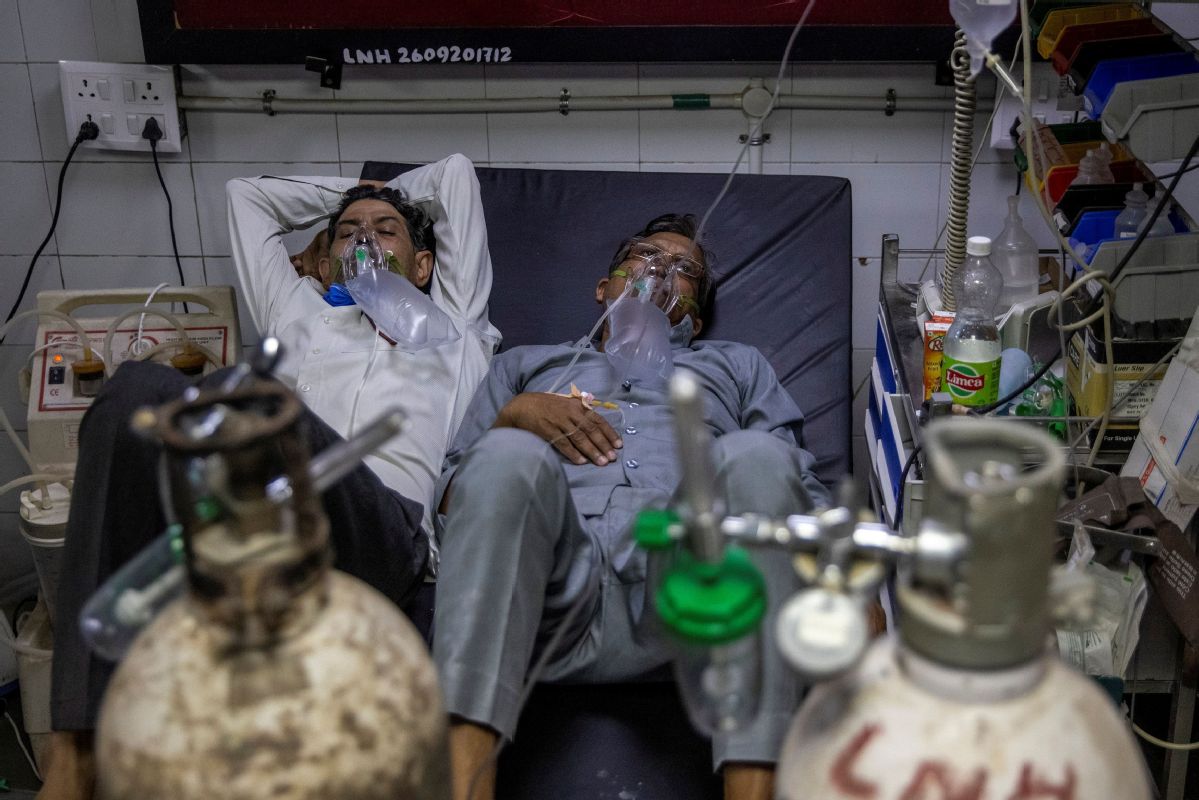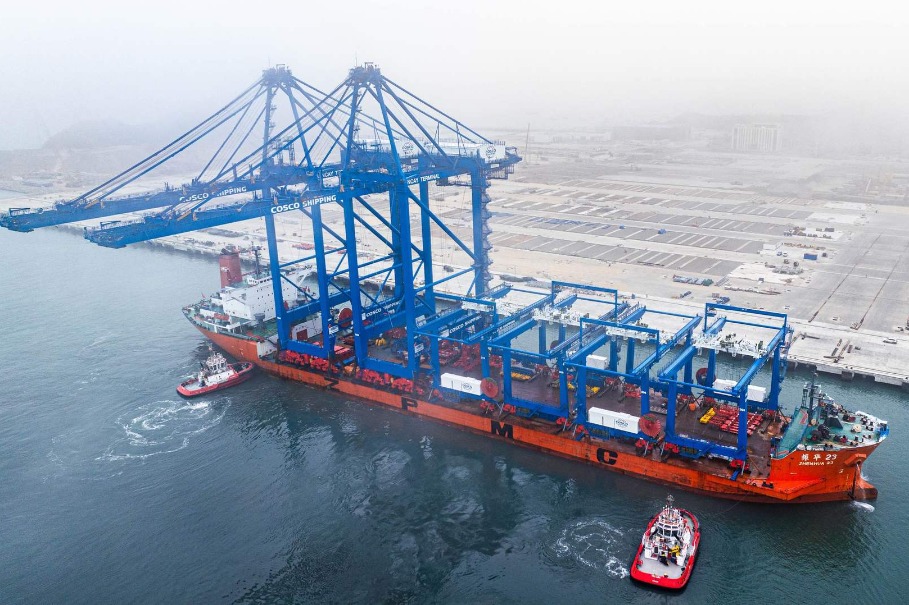India desperate for oxygen amid record COVID surge






At one hospital in New Delhi, doctors said 20 patients in a critical care unit died on Sunday after oxygen pressure dropped. The doctors blamed the deaths on the city's acute shortage of oxygen.
Crematoriums and burial grounds are being overwhelmed.
At Nigambodh Ghat, one of the biggest crematoriums in New Delhi for COVID-related funerals, some 120 bodies were cremated on Saturday, the highest daily figure to date this year, according to Suman Gupta, general secretary of the facility.
"From zero COVID-related cremations on April 1, the number has now reached around 50 per day," Gupta said.
In response, the Indian government decided to import oxygen supplies and help leading domestic manufacturers increase production of the gas and life-saving drugs. State governments have been told to crack down heavily on anyone caught hoarding supplies.
Indian railways and naval ships are transporting oxygen and life-savings drugs to areas with inadequate supplies.
With the surge in cases showing no signs of abating, several states, including Delhi, have extended lockdowns, night curfews and created new mini-containment zones in efforts to contain the virus.
However, the central government has been accused of letting its guard down too early and focusing too heavily on the economy.
In a radio address on Sunday, Prime Minister Narendra Modi said, "We were confident and our spirits were up after successfully tackling the first wave, but this storm has shaken the nation."
On April 20, Modi voiced reluctance to impose another lockdown, saying this should be used as a last resort, as there should only be a minimal adverse impact on people's livelihoods.
A senior Health Ministry official, who declined to be identified, said the pandemic was under control in January, but since then, healthcare facilities had not been expanded, and now people were paying a heavy price for this.
Mohammed Saqib, secretary-general of the India China Economic and Cultural Council, agreed with Modi, stating: "Imagine a situation when virtually the entire country slips into shutdown mode for an indefinite period. People's lives and livelihoods would take a hit."
It is much better for people to stay safe by following protocols, Saqib added.
Prasun Dutta, an independent power sector analyst and consultant based in New Delhi, said, "Memories are fresh of the earlier lockdown, which was introduced on March 25 last year, and the heavy toll it took on businesses, the economy and jobs."
He said that during the protracted nationwide lockdown more than two-thirds of businesses in the country went through hard times as a result of reduced cash flows.
Opposition parties have accused the government of inadequate planning and adopting an inappropriate strategy for preventing and controlling the virus.
Shahid Jameel, a virologist and director of the Trivedi School of Biosciences at Ashoka University in New Delhi, said the surge in cases has been blamed on people ignoring social distancing and not wearing face masks in crowded places.
Singh, from the University of Rajasthan, cited a number of possible factors for the faster spread of the second wave, including political rallies staged during local elections, along with religious festival celebrations attended by millions of people, most of them not wearing face masks.



















